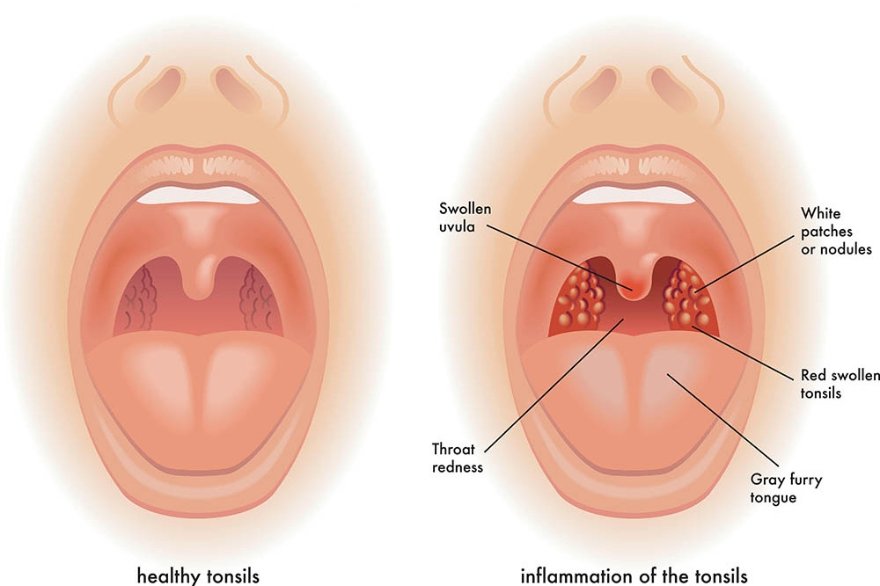All Departments
- Adenoidectomy
- Ear Infection
- Eardrum Surgery
- FESS ( Functional-Endoscopic-Sinus-Surgery)
- Mastoidectomy Surgery
- Myringotomy
- Nasal Polyps Surgery
- Septoplasty
- Sinus Surgery
- Stapedectomy
- Throat Surgery
- Thyroidectomy
- Tonsillectomy
- Tonsillectomy
- Turbinate Reduction
- Tympanoplasty
- Vocal Cord Surgery
Emergency Cases
917838450942
Throat Surgery
Best healthcare center for Throat Infections in India
Doxtreat is a highly esteemed healthcare center in India that offers top-notch throat infection treatments at affordable prices. Our aim is to make quality treatment accessible to as many people as possible, which is why we have partnered with over 800 hospitals in all major Indian cities.
Our team of ENT surgeons are highly qualified and possess years of experience in providing effective treatments for throat infections. We have modern clinics and partnered hospitals that are equipped with cutting-edge equipment and state-of-the-art infrastructure. Along with surgical procedures, we also offer free consultations, insurance assistance, No Cost EMI offers, and other facilities to our patients.
For a reliable and effective treatment for throat infections, reach out to Doxtreat.

What are the treatments for Throat Infections?
The treatment for a throat infection depends on the underlying cause. If the infection is caused by a virus, the symptoms will typically improve on their own within a week or two, and treatment may focus on managing the symptoms. Here are some common treatments for throat infections:
Pain relief: Over-the-counter pain relievers such as ibuprofen or acetaminophen can help to relieve pain and reduce fever.
Rest and hydration: Resting and drinking plenty of fluids can help the body to fight the infection and reduce symptoms.
Gargling: Gargling with warm salt water can help to reduce inflammation and soothe a sore throat.
Antibiotics: If the infection is caused by bacteria, antibiotics may be prescribed to kill the bacteria and help the patient recover.
Lozenges and throat sprays: Over-the-counter throat lozenges or sprays can provide temporary relief from a sore throat.
It is important to consult a healthcare professional if the symptoms persist for more than a few days, if they are severe, or if they are accompanied by other symptoms such as difficulty breathing or swallowing.

Surgical treatment for Throat Infections
Surgical treatment for throat infections is generally not necessary in most cases. However, there are some situations where surgery may be recommended to treat a severe or recurrent infection. Here are some examples:
Tonsillectomy: A tonsillectomy is a surgical procedure to remove the tonsils, which are the two masses of tissue located at the back of the throat. Tonsillectomy is usually recommended for people who experience recurrent episodes of tonsillitis (inflammation of the tonsils) or when the tonsils become enlarged and interfere with breathing or swallowing.
Adenoidectomy: An adenoidectomy is a surgical procedure to remove the adenoids, which are small masses of tissue located at the back of the nasal cavity. Adenoidectomy may be recommended for people who experience recurrent episodes of adenoiditis (inflammation of the adenoids) or when the adenoids become enlarged and interfere with breathing or swallowing.
Drainage of an abscess: In rare cases, a throat infection can lead to the formation of an abscess, which is a collection of pus that requires drainage. The abscess may be drained using a needle or by making a small incision in the throat.
It is important to discuss the risks and benefits of any surgical treatment with a healthcare professional and to follow all post-operative instructions carefully to ensure a successful recovery.

How to prepare for throat infection surgery?
If you are scheduled to undergo surgery for a throat infection, it is important to follow your healthcare professional’s instructions carefully to prepare for the procedure. Here are some general guidelines to help you prepare for throat infection surgery:
Follow any pre-operative instructions: Your healthcare professional may provide you with specific instructions to follow before the surgery, such as fasting for a certain period of time or stopping certain medications. It is important to follow these instructions carefully to ensure the surgery goes smoothly.
Arrange for someone to drive you home: Depending on the type of anesthesia used during the procedure, you may be unable to drive or operate heavy machinery for several hours after the surgery. It is important to arrange for someone to drive you home and to have someone stay with you for the first 24 hours after the procedure.
Plan for post-operative recovery: Depending on the type of surgery, you may experience some pain, swelling, or difficulty swallowing after the procedure. Make sure to stock up on soft foods, pain medications, and other items you may need during the recovery period.
Avoid smoking and alcohol: Smoking and alcohol can delay healing and increase the risk of complications after surgery. It is important to avoid smoking and alcohol for at least several days before and after the procedure.
Stay hydrated: Staying hydrated can help to promote healing and reduce the risk of complications after surgery. Make sure to drink plenty of fluids before and after the procedure.
It is important to discuss any questions or concerns you have about the surgery with your healthcare professional to ensure a safe and successful outcome
How to recover after throat Infection Surgery?
Recovery after throat infection surgery depends on the type of surgery performed and the individual’s overall health. Here are some general guidelines that may help with the recovery process:
Follow post-operative instructions: Your healthcare professional will provide you with specific instructions to follow after the surgery, such as taking medications, performing certain exercises, or avoiding certain foods or activities. It is important to follow these instructions carefully to ensure a smooth recovery.
Rest and take it easy: It is important to rest and take it easy for a few days after the surgery to allow the body to heal. Avoid strenuous activities or heavy lifting until cleared by your healthcare professional.
Stay hydrated: Drinking plenty of fluids can help to promote healing and reduce the risk of complications. Water, clear broths, and fruit juices are good options.
Eat soft foods: After throat surgery, it is important to eat soft, easy-to-swallow foods for the first few days. Examples include soups, mashed potatoes, scrambled eggs, and smoothies.
Manage pain: Throat surgery can cause some discomfort or pain, especially during the first few days. Your healthcare professional may prescribe pain medication or recommend over-the-counter pain relievers.
Monitor for complications: It is important to monitor for any signs of complications after throat surgery, such as fever, bleeding, or difficulty breathing. If you experience any of these symptoms, contact your healthcare professional immediately.
Attend follow-up appointments: Follow-up appointments with your healthcare professional are important to monitor your recovery and ensure that there are no complications.

What are the preventive measures for throat infections?
There are several preventive measures that can help reduce the risk of getting a throat infection. Here are some examples:
Practice good hygiene: Wash your hands frequently with soap and water, especially after being in public places, using the restroom, or before eating.
Avoid close contact with sick people: Try to avoid close contact with people who have a sore throat or other symptoms of an infection.
Cover your mouth and nose: When coughing or sneezing, cover your mouth and nose with a tissue or your elbow to prevent the spread of germs.
Don’t share personal items: Do not share personal items such as drinking glasses, eating utensils, or toothbrushes.
Stay hydrated: Drinking plenty of fluids can help keep the throat moist and reduce the risk of developing an infection.
Manage allergies: Allergies can cause throat irritation and increase the risk of developing an infection. Managing allergies through medications or allergy shots may help reduce the risk.
By following these preventive measures, you can reduce the risk of developing a throat infection and stay healthy. If you do develop symptoms of a throat infection, it is important to seek medical attention and follow the recommended treatment plan to prevent the infection from spreading or becoming worse.
Risks and complications associated with throat infection surgery
As with any surgical procedure, there are risks and potential complications associated with throat infection surgery. Some of the risks and complications may include:
Bleeding: Bleeding is a common risk associated with any surgery, including throat infection surgery. Excessive bleeding may require a blood transfusion or additional surgery.
Infection: Infection may occur at the site of surgery or elsewhere in the body, requiring antibiotic treatment.
Scarring: Scarring may occur at the site of surgery, which may cause discomfort or affect speech or swallowing.
Difficulty swallowing or speaking: Throat infection surgery may temporarily or permanently affect swallowing or speaking abilities, depending on the extent and type of surgery.
Nerve damage: Throat infection surgery may cause nerve damage, which may result in difficulty speaking, swallowing, or breathing.
If you experience any complications or unusual symptoms after throat infection surgery, it is important to contact us immediately

